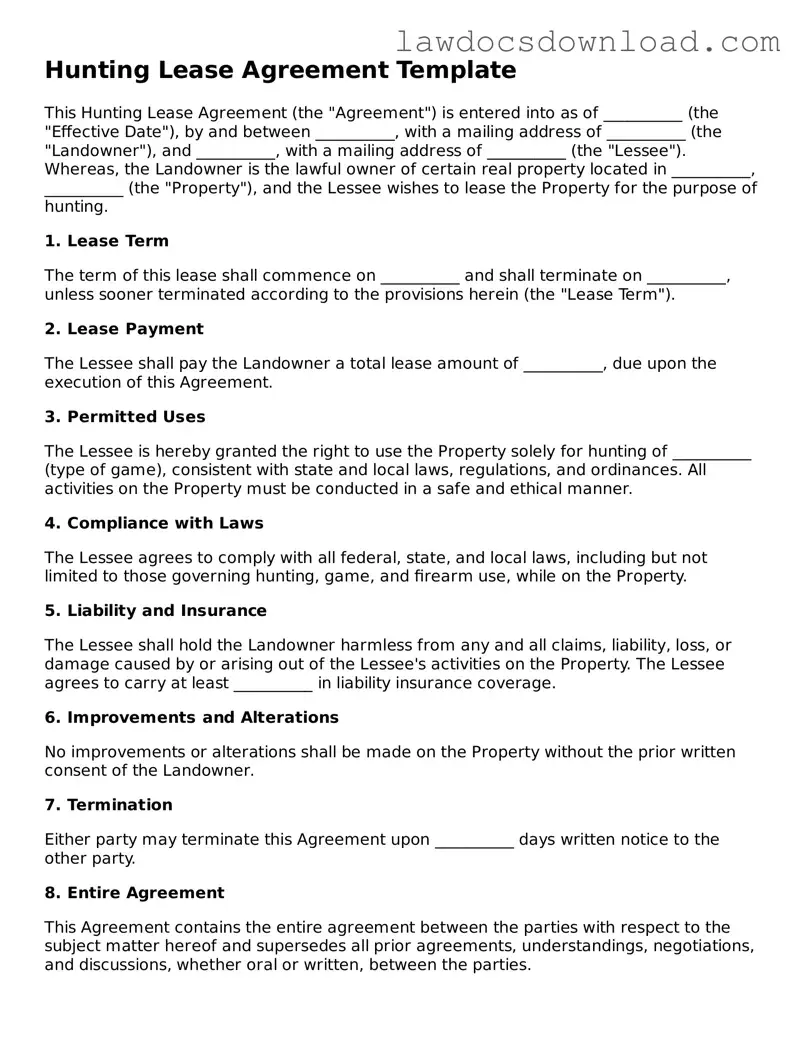Blank Hunting Lease Agreement Template
A Hunting Lease Agreement form is a legal document that outlines the terms and conditions between a landowner and an individual or group who wish to use the land for hunting purposes. It serves to protect the rights and responsibilities of both parties, ensuring a clear understanding of use, duration, and compensation associated with the leased property. This form is essential for any transaction involving hunting rights on private land.
Launch Hunting Lease Agreement Editor Here

Blank Hunting Lease Agreement Template
Launch Hunting Lease Agreement Editor Here

Launch Hunting Lease Agreement Editor Here
or
Free Hunting Lease Agreement
Get this form done in minutes
Complete your Hunting Lease Agreement online and download the final PDF.